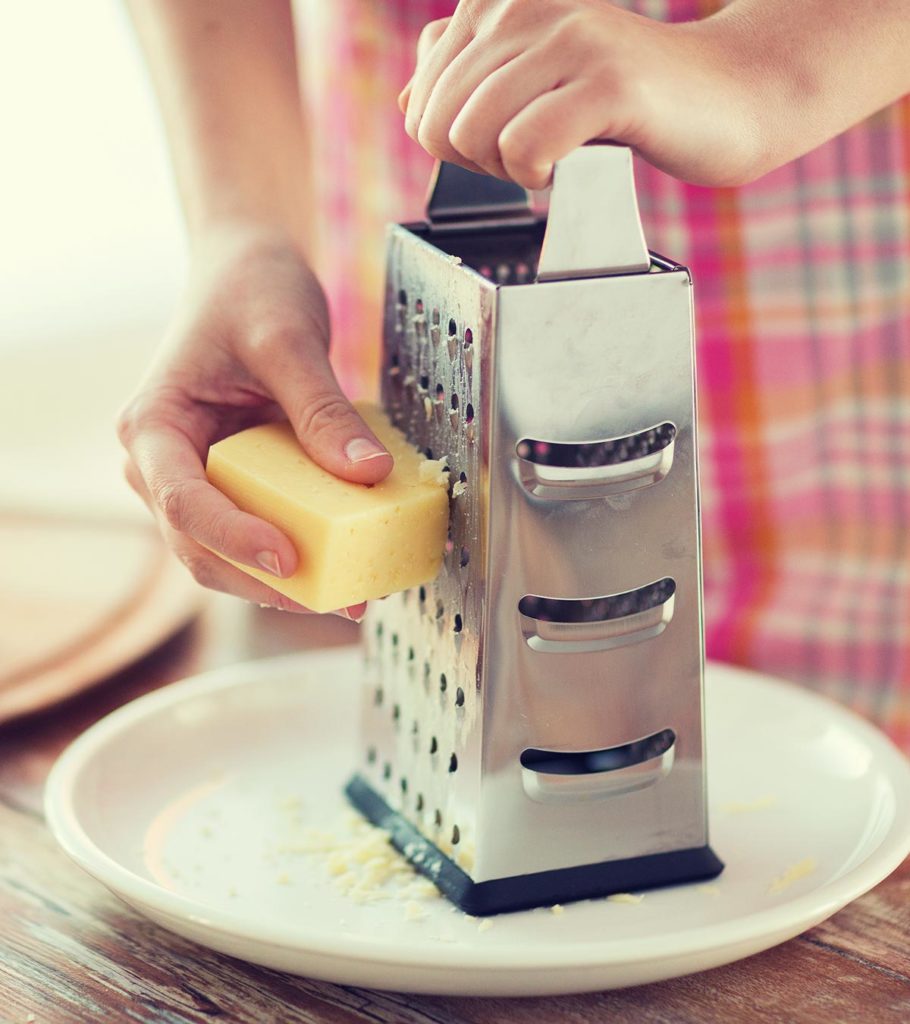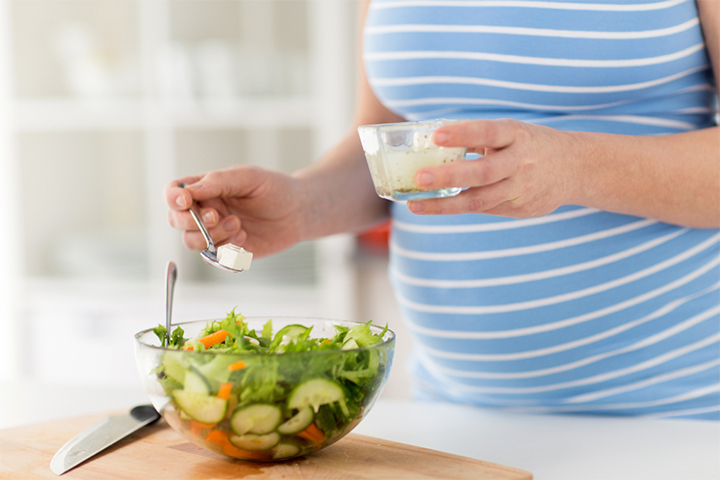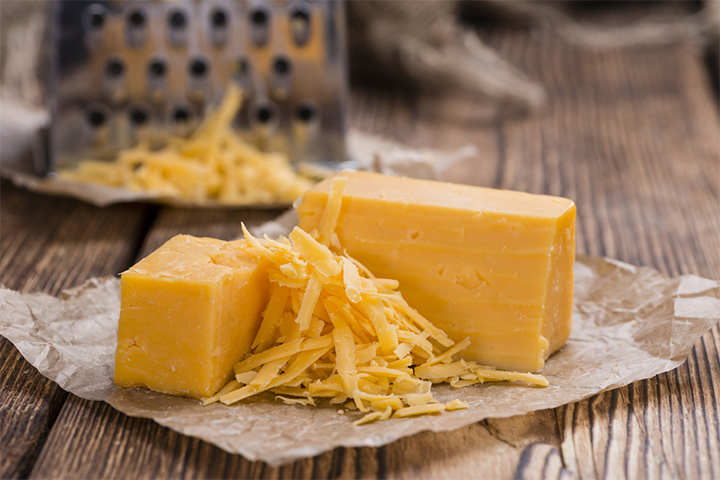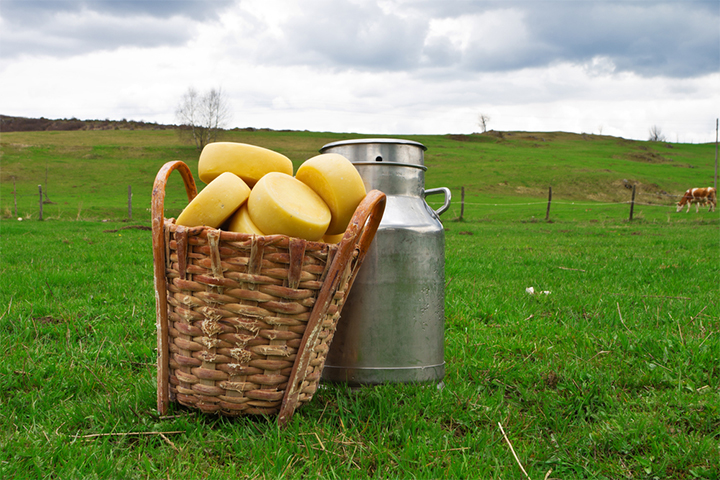Cheese is a rich source of protein, calcium, and certain vitamins and minerals. Consuming cheese while breastfeeding can help enhance the nutritional quotient of your postnatal diet, which is much required to fulfill your and your baby’s daily nutritional requirements. However, you should take certain precautions to ensure that the products you choose are safe for consumption during this period.
Continue reading this post to learn more about the types of cheese, their health benefits for nursing mothers, the nutritional value of different cheeses, and ways to identify the appropriate product.
Is It Safe To Eat Cheese While You Are Breastfeeding?
While you are breastfeeding, it is important to have a healthy and balanced diet that will be nutritious for you and your little one. It is safe to eat most pasteurizediXProducts that are made bacteria and pathogens-free by heating at controlled temperatures for a specific duration. cheese types while pregnant, but some babies may react to the proteins casein and whey found in dairy products when you are breastfeeding. If your baby is in pain or gassy after a feed, it may be that the baby is struggling to digest those proteins. If you continue to face the issue, you can seek breastfeeding support from your doctor or lactation consultant. Also, tracking what you eat and how the baby reacts after the next feed can give you an idea of your diet’s effect on your baby’s digestion of your breastmilk.
An anonymous mother shares her experience of giving up cheese and other dairy products while breastfeeding because her child was sensitive to dairy. She mentions, “Ah, the dairy sensitivity. At around 1 month, we suspected Quinn had developed a sensitivity to dairy. So I altered my diet & she was like a different baby. I’d like to think I’m a fairly healthy eater but hell I missed cheese & ice cream. I would even dream of gooey 4-cheese pizzas, not kidding. It was quite jarring to alter my diet in such a way. I now have a whole new respect for people who have food allergies & sensitivities (i).”
Health Benefits Of Eating Cheese While Breastfeeding
Cheese is a storehouse of nutrients that will boost your maternal health and the growth of your breastfeeding baby. Here is a look at some of the ways cheese can work wonders for your health:
- Cheese is rich in protein and calcium. Both these nutrients are vital for safeguarding your baby’s overall development and promoting infant health. Adding protein to your maternal diet will keep your tummy full and prevent you from snacking on junk food. The calcium will also help strengthen your bones and teeth and prevent the onset of osteoporosisiXA condition that weakens bones, increasing the chance of sudden, unsuspected bone fractures..
- Eating cheese along with a well-balanced diet will help you absorb lesser carbohydrates and keep your blood sugar levels in check.
- In some cases, women who eat cheese also seem to get some relief from their menstrual symptoms.
- Cheese is also a rich source of zinc and biotin. Zinc aids the growth and repair of your tissues. Therefore, eating the yummy cheese will not only help to pamper your taste buds but it can boost your speed of recovery too. It also prevents macular degenerationiX An eye disease that affects the center of the retina, leading to a loss of central vision., keeps your skin healthy and makes your nails strong. Biotin helps to prevent hair fall, which is a common complaint among new moms.
Nutritional Value And Health Benefits Of Different Cheese
Have a look at the various nutritional and health benefits you get from the different types of cheese available in the supermarket:
1. Blue cheese
Eating blue cheese while breastfeeding can help manage osteoporosis and gout as well as keep your teeth healthy and strong. Blue cheese is high in saturated fat, so watch your intake.
2. Cheddar cheese
It is a good source of calcium, phosphorus, sodium, zinc, Vitamin A, and protein. It also has a high saturated fat content. Therefore, go for the low-fat variant (1).
3. Cream cheese
It is a rich source of Vitamin A, Sodium, riboflavin, protein, and phosphorus (2)
4. Feta cheese
It is a powerhouse of nutrition as it contains protein, riboflavin, Vitamin B6, Vitamin B12, calcium, phosphorus, sodium, zinc, and seleniumiXAn essential mineral found in foods such as nuts, fish, and chicken, involved in thyroid, reproductive, and cell-protective functions. (3)
Tips To Shop For Cheese
Here are some tips for buying cheese during breastfeeding:
- Go for organic cheese: Organic cheese will have a far lesser chance of contamination than regular cheese. Remember, the safety of your food is extremely crucial when you are breastfeeding your baby. Therefore, opting for organic food is a wise idea for lactating moms.
- Grass-fed cheese: If you want to get something that is even better than just organic, ask for grass-fed cheese. Grass-fed cheese is a product obtained from the grass-fed dairy animals. You should try and buy the cheese that says ‘100 percent grass-fed’ on the label.
- Buy from local farms: If you have a local farm near your home, try getting organic and 100% grass-fed cheese directly from there. Local farms that have smaller flocks often let their dairy animals feed in a natural habitat.
Cheese is loaded with important nutrients, including calcium, zinc, vitamins, and minerals that are good for you and your baby when you are breastfeeding. However, since cheese contains proteins casein and whey, you may notice some babies becoming gassy or experiencing abdominal pain after feeding. Therefore, if you eat cheese during breastfeeding, monitor your baby regularly. Keeping track of what you eat will give you a better idea of what suits your baby and what does not. Talk to your doctor if your baby faces any discomfort.
Key Pointers
- Pasteurized cheese is safe to consume while nursing and is a good source of calcium, protein, and other vital nutrients.
- Cheese consumption has health benefits, such as supporting teeth and bone health, decreasing hair loss, and easing menstrual symptoms.
- To ensure quality, consider purchasing cheese from reputable suppliers or nearby farms.
- Look for cheese that has organic and grass-fed mentioned on the labels when buying.
Cheese is a delicious food, but is it a good probiotic? With this video let’s explore the benefits of cheese and how it can help your gut health.














